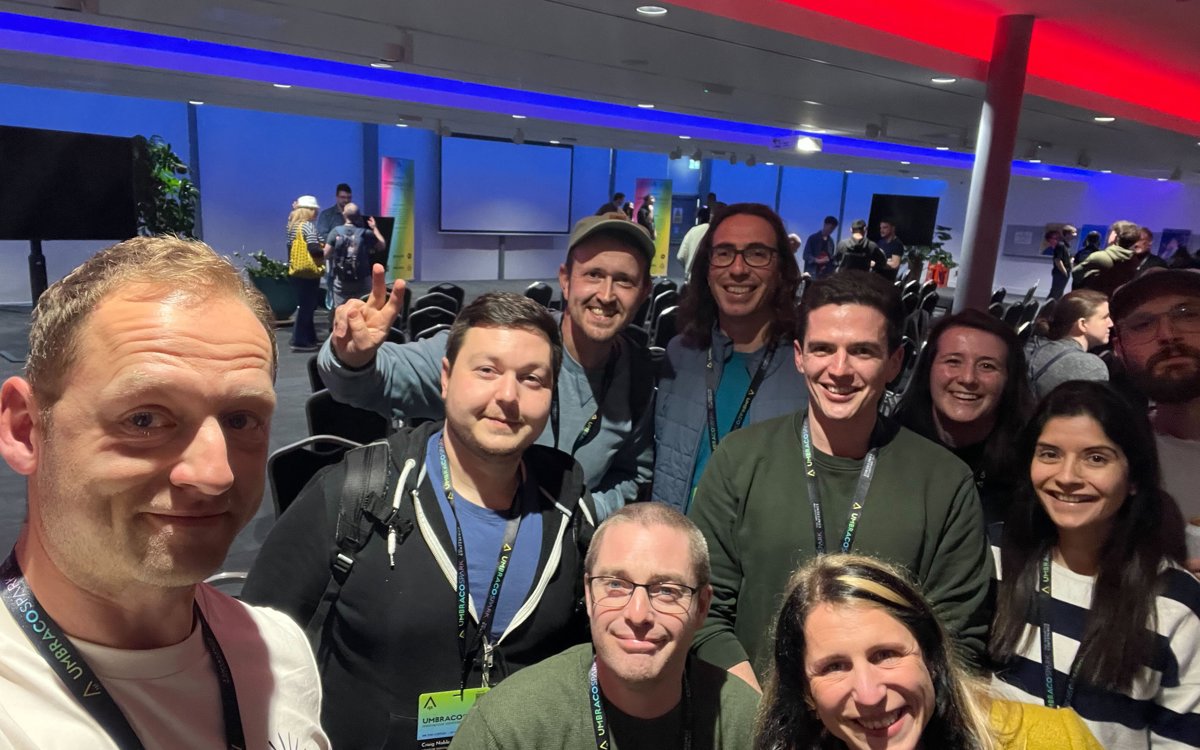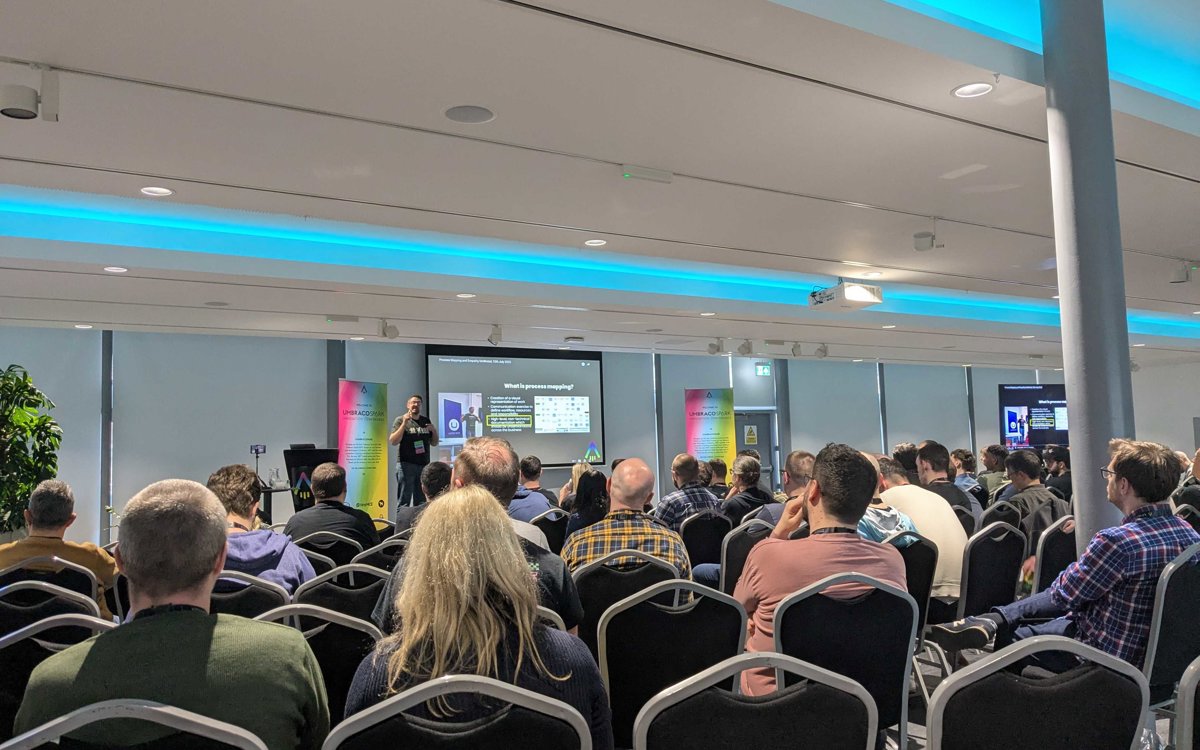
Mentor Digital sent a team of Developers, Designers and Client Strategists along to the Umbraco Spark conference in Bristol last month. Here are our top five takeaways from a packed agenda of insightful talks and presentations delivered during the event.
The Future of Umbraco is looking fast and flexible
There was a strong focus on performance and scalability this year. Luke Hook’s Gotta Cache 'Em All and Nikolaj Geisle and Jacob Overgaard’s deep dive into Hybrid Cache and API users showed how Umbraco is gearing up for high-performance, decoupled, and headless use cases. It’s exciting to see Umbraco doubling down on being a CMS that plays well in complex, distributed environments. That said, in our experience we would argue that such a complex set of use cases and environments will inevitably raise challenges, especially when working on websites that have dependencies on integrations with CRMs that require real-time data updates and sliding cache expiration. Solutions that determine what gets cached long term versus short term, and how the relevant durations are applied across multiple scenarios and use cases will be of paramount importance, as will meeting Content Managers’ expectations of how to surface the tools to manage these rules within the interface.


“It’s exciting to see Umbraco doubling down on being a CMS that plays well in complex, distributed environments.”
Containerisation and Cloud-Native thinking is taking hold
Imran Haider’s session on Azure Container Apps was a practical, real-world look at greener and cheaper hosting strategies. With rising demand for sustainability and efficiency in tech, his message hit home: serverless and container-first approaches aren't just trendy buzz words, they’re necessary components of a more sustainable future.
As is often the case, we would emphasise the importance of thorough analysis and planning at the start of any given project to fully assess what dependencies are at play and how diagnostics will be obtained. Containerisation is undoubtedly a demonstrable benefit to the system admin in terms of energy and cost savings, but it can also present challenges when it comes to analysis, debugging and the need for continuous integration. Of particular importance is the fact that continuous integration setup can vary considerably, and the differences in setup between a web app and a containerized version and how diagnostics will be obtained from each needs to be fully understood to ensure the solution put in place is fit for purpose.
High grade, open Telemetry remains of paramount importance
Carl Sargunar’s session Observing Your CMS – Umbraco and Open Telemetry highlighted that it’s not just about logs anymore, it’s about insightful observability. This shift in mindset means that Developers can truly understand the behaviour of their Umbraco sites in production. This transition from reactive debugging to proactive monitoring represents a big step forward here.
Telemetry can provide a treasure trove of highly useful information and having access to detailed log files is hugely helpful in diagnosing a plethora of complex issues. With tech sustainability in mind the storage implications here can be challenging, as maintaining large volumes of diagnostic information on hosted environments can come with very high energy and cost requirements. To mitigate this careful consideration should be given to deciding how long information is stored for, and the application of a sliding scale that considers the importance level of information types and in turn the length of time that each type is stored.
Whilst we will always work to create sustainable tech, high-grade telemetry is in our view of huge importance. This is increasingly the case due to how different the various approaches to gathering debug and helpful log files are between hosting applications on Web Apps and EC2 instances, and containerized applications.
“Telemetry can provide a treasure trove of highly useful information and having access to detailed log files is hugely helpful in diagnosing a plethora of complex issues.”
Technical neglect versus debt and the importance of codebase care
Kevlin Henney’s Technical Neglect talk reframed the realm of technical debt as technical neglect, a viewpoint which struck a chord with a lot of attendees, including ourselves. Kelvin argued that it’s all too easy to justify rushed decisions as ‘technical debt,’ but the real costliness accumulates when teams ignore and neglect things entirely. A sobering reminder of the importance of caring for our codebases.
We agree whole heartedly, but also we’re mindful of the fact it can be difficult to attribute a cost-benefit value to the time and effort involved in minimising all technical debt. Developers frequently advocate the benefits of maintaining a clean code base as a means of maximising efficiency and producing better (not to mention faster) results with the application in future, but communicating this as a benefit worth investing in to a paying client can be a challenge when they may not see the results in the customer-facing side of the application. Creating a shared vision of how spending time on maintaining the application will benefit everybody over time is key here.
Collaborating in live code workshops was a real highlight
We loved the demonstrations of the output from the live session to hack together packages. The level of imagination and technical expertise on show was impressive, and the fact tangible products were devised so quickly by a cohort of likeminded people provided fantastic entertainment and was really inspiring. We’d love to have more opportunities in future to collaborate with the Umbraco community and enable Developers from a range of businesses and skillsets to turn the great ideas that came from the workshops into usable packages within the marketplace.
Last but by no means least, a huge thank you to the organisers and all the speakers for such a fantastic event. We took a massive amount from the day, and as an Umbraco Gold Partner we feel proud and inspired in equal measure to be part of such a vibrant and flourishing community. Roll on Umbraco Spark 2026!


